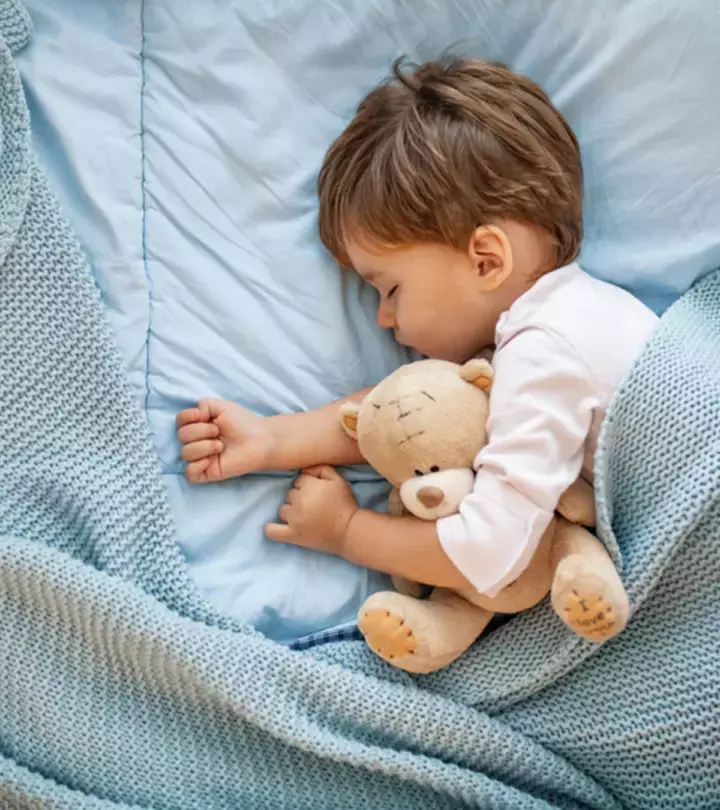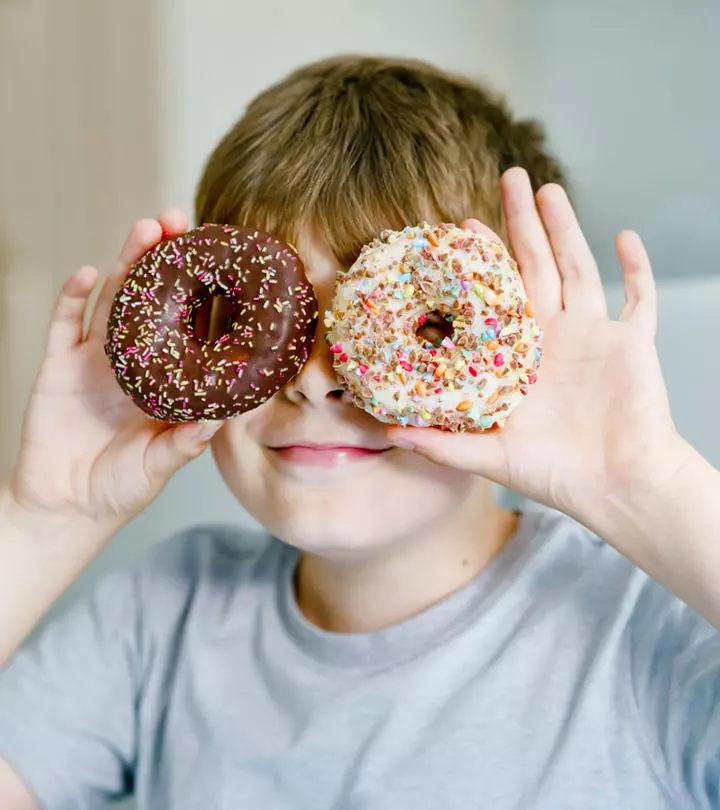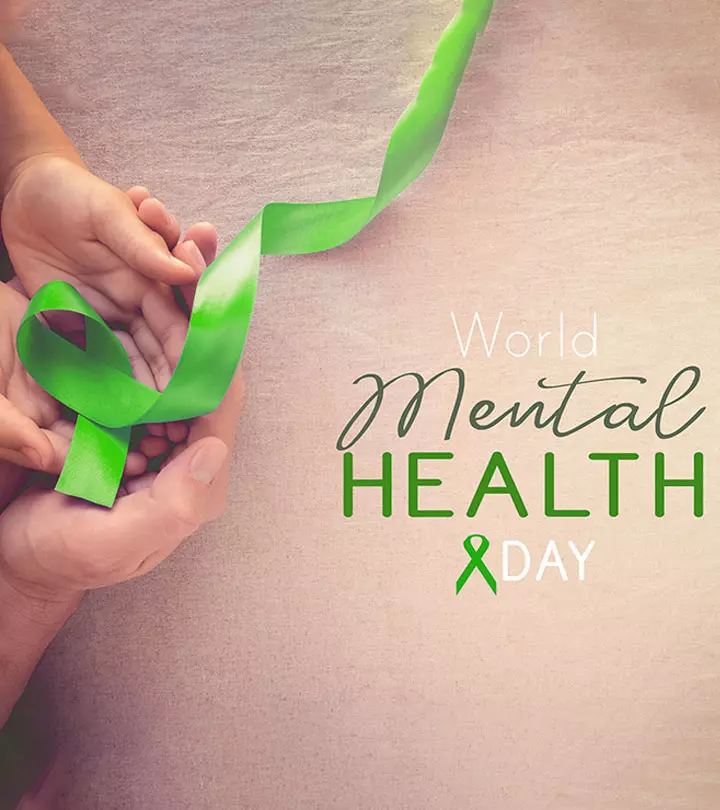
Image: Shutterstock
A lot of mothers would relate to spending many nights wide awake, tending to restless newborns who are extremely curious and playful even at midnight. It takes an incredible amount of patience and gradual practice to set the sleep cycle for your baby. The art of balancing daytime naps and a night of deep sleep requires proper discipline. It is easier to memorize and remember things with a well-functioning brain than a mind exhausted and fatigued from lack of sleep. We’re sure every mother knows that, but the execution is not always perfect.
Getting sufficient sleep is a given for the good health of the mind and body. We’ve all heard this, and we understand how important it is — for both adults and babies. While it’s incredibly challenging to get your newborn baby into a proper sleep schedule, it’s crucial that you do it because the quality of sleep impacts a kid’s growth and development. Parents spend sleepless nights trying to get their babies on a regularized sleep pattern which is essential to improve their health. But did you know that sleep plays a vital role in memory and learning in kids? Keep reading to find out; How sleep, learning and memory are indirectly interlinked:
How Is Sleep Connected To Memory?

Image: Shutterstock
We all know how sleep helps us function better and improves our overall health. But that’s not all it does. It helps improve memory function too. When you get enough rest, you can process new information once you wake up. When you sleep after learning during the day, your mind consolidates all the information into memories and allows you to store them in your brain.
Memory consolidation, which is a process of preserving memories and discarding excessive information, occurs during sleep by strengthening the neural connections that form from memories. Further studies and research have to be done to understand how sleep makes this possible, but experts think it’s due to the specific characteristics of brain waves formed during the different stages of sleep.
It is time to get into some technical lingo to help you better understand sleep functions in your child. Research suggests that quality sleep helps learning and memory, primarily during two different stages of your sleep cycle — the non-rapid eye movement (NREM) and rapid eye movement (REM) stages. Healthy sleep occurs in four different stages. The first two stages of the NREM stage are considered as “light sleeping”, followed by the third NREM stage of “deep sleep” During these three stages, the brain prepares to learn new information the next day. It also filters and segregates essential information while eliminating others (1).
These selected memories become solid during the deep NREM sleep, and you gradually drift into REM sleep. Emotions, dreams, and tough memories are processed during REM which may help you cope with trauma. The part of your brain called the thalamus is mostly inactive during NREM sleep but begins to relay sounds, images, and other sensations to the cerebral cortex during REM sleep. These sensations are then integrated into your dreams which mostly happen during REM sleep.
Naps And Memory

Image: Shutterstock
Now that the science behind sleep and memory has been established, let’s look at how it helps your child. In an adult brain, memories are consolidated into general knowledge. A baby’s brain works similarly, except that it’s more than just generalization. Studies show that a baby’s brain during sleep also consolidates the details of an individual experience and protects them from generalization (2). Super cool, isn’t it! This experience helps them develop an episodic memory which enables babies to remember details of an individual experience after napping. During an experiment, scientists observed that the memory of a child who napped was different from one who didn’t. The results of the experiments also showed that babies could remember events from their infant life, and sleep has a lot to do with it.
Cognitive Effect Of Lack Of Sleep In Kids

Image: Shutterstock
It is natural for most kids to be unaware of the role of sleep in their mental functioning. You might have noticed kids spending hours playing a video game or performing in their favorite activity. There are multiple issues that stem from it. It’s like an endless loop of sleep deprivation, stress, that results in memory loss. If kids skip their sleep time, it gives birth to multiple problems like being distracted while learning, daydreaming, and uninterested in studying or other crucial tasks. They tend to forget things easily because their brains are very exhausted. To retain brand new information, they might take longer than other kids who have a healthy sleep cycle. Not only does it affect memory retention, additional stress, moody behavior, getting irritated, and being stubborn are some of the many symptoms.
To prevent that from happening, parents must condition the child into a daily routine. Create a timetable and encourage the kid to set timings for other tasks and pay extra attention to getting sleep. Be straightforward about the importance of sleep at an early age to make them understand the importance of a balanced routine. You do not have to act as an uber-strict parent all the time for this. Follow the same routine with your kid to help motivate him/her to stick to a disciplined lifestyle.
As adults who get the side effects of sleep, dark circles, and lack of work productivity, it is crucial to note that children also have a body clock. It’s just that they need to polish it to realize it themselves. Being early birds and going to sleep on time alone can make a huge difference, to begin with. We understand it is easier said than done, but that’s what parenting is all about, right?! Without adequate sleep, receiving information becomes a tedious task. It’s easy to lose focus, attention and it becomes difficult to recall events. Judgment is impaired, too. Therefore, all that time and effort that goes into making your baby get adequate sleep is totally worth it! Did you know that sleep influences learning and memory? Let us know in the comments below!
References
- Memory and Sleep
https://www.sleepfoundation.org/how-sleep-works/memory-and-sleep - Babies retain even detailed events during a nap
https://www.sciencedaily.com/releases/2020/04/200407131435.htm
Community Experiences
Join the conversation and become a part of our nurturing community! Share your stories, experiences, and insights to connect with fellow parents.












